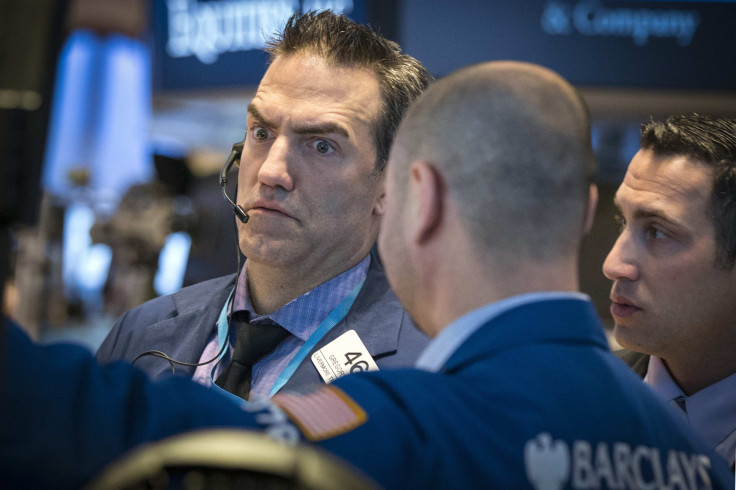Dow Jones Industrial Average, S&P 500 Index Close Flat Following FOMC Minutes

U.S. stocks closed lower Wednesday, despite erasing losses made earlier in the trading session, after the minutes from the U.S. Federal Reserve's latest meeting showed policy-makers were in no hurry to hike interest rates. All three major U.S. indices fluctuated throughout most of the day on uncertainty over the bailout negotiations in Greece.
The Dow, which measures the share prices of 30 large industrial companies, lost 17.73 points, or 0.10 percent, to close at 18,029.85; the S&P 500 index lost just 0.66 points, or 0.03 percent, to end at 2,099.68. However, the Nasdaq Composite rose 7.10 points, or 0.14 percent, to finish at 4,906.36.
Fed Officials In No Rush To Raise Rates
The latest minutes from the Fed's Jan. 27-28 meeting showed policymakers discussing whether tightening monetary policy too soon could have damaging effects on the U.S. economy. The Federal Open Market Committee debated whether raising rates too soon would dampen the prospects for maximum employment and hinder the central bank’s 2 percent target for inflation.
However, the minutes show that Fed officials expect the “transitory” effects from low energy prices to eventually subside later this year, which could signal a hike in interest rates in September. “Participants generally anticipated that inflation would rise gradually toward the committee's 2 percent objective as the labor market improved further and the transitory effects of lower energy prices and other factors dissipated,” the Federal Reserve said in its FOMC minutes Wednesday.
ECB Extends Liquidity For Greek Banks
The European Central Bank has approved a 68 billion euro ($77 billion) two-week extension on emergency liquidity for Greek banks, Dow Jones reported Wednesday, citing sources. The news comes as time is running out on Greece's current bailout program, which expires Feb. 28.
Global fears escalated after Greece and eurozone finance ministers failed to reach an agreement regarding the country’s debt program Monday. However, the Greek government said it will request a loan extension of up to six months from its creditors Thursday. Greek Finance Minister Yanis Varoufakis said Wednesday that he expects eurozone finance ministers to approve a Greek proposal to extend the country's loan agreement Friday, Reuters reported.
Oil Prices Fall Below $60 A Barrel On Supply Glut Fears
Oil prices tumbled below $60 a barrel in afternoon trading Wednesday after concerns about oversupply weighed on the previous session’s rally. Oil prices had closed higher Tuesday, with global crude prices jumping to $63 a barrel, its highest level since Dec. 18.
Brent crude, the benchmark for global oil prices, tumbled 4 percent Wednesday to close at $60.53 a barrel for April 15 delivery on the London ICE Futures Exchange. West Texas Intermediate crude, the benchmark for U.S. oil prices, fell 2.6 percent to close at $52.14 a barrel for March 15 delivery on the New York Mercantile Exchange.
The U.S. Energy Information Administration is scheduled to release its weekly oil inventories report Thursday after data last week showed U.S. commercial crude surged to an 80-year high. Oil inventories increased by 4.9 million barrels for the week ended Feb. 6, the Energy Information Administration said last week. At 417.9 million barrels, U.S. crude oil inventories are at the highest level for this time of year in at least 80 years.
Wall Street’s Day Ahead: Weekly Jobless Claims
Economists are looking ahead to Thursday’s economic calendar, which includes weekly jobless claims, or the number of Americans filing new claims for unemployment. Initial claims for state unemployment benefits rose more than expected last week, increasing 25,000 to a seasonally adjusted 304,000 for the week ended Feb. 7, the Labor Department said Feb. 12. However, the prior week’s reading showed jobless claims declined to their lowest level since April 2000.
Economists expect initial claims for unemployment benefits to fall 11,000 to 293,000 for the week ended Feb. 12, according to analysts polled by Thomson Reuters.
© Copyright IBTimes 2024. All rights reserved.






















